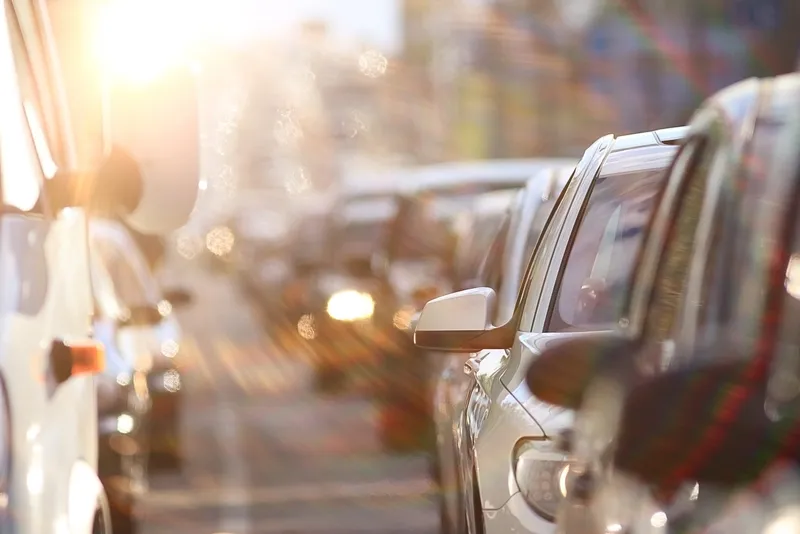The Institute of Advanced Motorists (IAM) is urging the new government to increase its efforts in promoting road safety by giving targeted enforcement a higher priority.
With the yet-to-be-revealed figures for 2014 shaping up to show an increase in deaths and injuries on UK roads, the IAM believes the new government must make road traffic policing a core priority function for police forces and commissioners in England and Wales.
The call comes following a survey conducted by the IAM throughout April 2
June 4, 2015
Read time: 3 mins
The 6187 Institute of Advanced Motorists (IAM) is urging the new government to increase its efforts in promoting road safety by giving targeted enforcement a higher priority.
With the yet-to-be-revealed figures for 2014 shaping up to show an increase in deaths and injuries on UK roads, the IAM believes the new government must make road traffic policing a core priority function for police forces and commissioners in England and Wales.
The call comes following a survey conducted by the IAM throughout April 2015, in which 2,703 people took part. Despite years of government cutbacks and police budgets continuing to be stretched, over 45 per cent of respondents voted for an increase in the number of police officers in marked vehicles to enforce traffic laws.
Top offences that road users would like to see police officers tackle include; mobile phone use at the wheel – voted by 72 per cent; drink and drug-driving – voted by 65 per cent; aggressive and angry drivers – voted by 50 per cent; and tailgating drivers – voted by 42 per cent.
With over 3,064 motorists killed or seriously injured in 2013 as a result of speeding according to National Police Chiefs’ Council (NPCC) figures, the IAM says tackling speed related offences also remains a major priority for drivers. According to 64 per cent of survey respondents, one of the best ways to confront the issue is by ensuring that there are more traffic police officers on all major urban roads.
According to research from the National Police Chiefs’ Council (NPCC) young drivers aged between 20 and 25 are most likely to be caught driving under the influence of alcohol and are therefore at a higher risk of being involved in a road accident. Some 44 per cent of respondents agree that a new consultation is needed to reflect the growing support for a lower limit following Scotland’s new drink-drive legislation from 80mg to 50mg limit, which came into effect on 5 December 2014.
IAM’s chief executive officer, Sarah Sillars, said: “The government cannot afford to be complacent about road safety and a lot more needs to be done to address major road offences through the enforcement of existing legislation and full use of police powers. The IAM supports an increase in the number of high profile road policing officers and a zero tolerance approach to the enforcement of traffic laws.
“Where drivers are failing to live up to the required standards they must be given access to a wider range of targeted retraining courses that refresh their skills, these include the IAM drink-drive rehabilitation course, educational campaigns targeting young drivers, and the IAM Skill for Life course which help existing drivers to improve their skills and give them greater awareness of other road users.”
With the yet-to-be-revealed figures for 2014 shaping up to show an increase in deaths and injuries on UK roads, the IAM believes the new government must make road traffic policing a core priority function for police forces and commissioners in England and Wales.
The call comes following a survey conducted by the IAM throughout April 2015, in which 2,703 people took part. Despite years of government cutbacks and police budgets continuing to be stretched, over 45 per cent of respondents voted for an increase in the number of police officers in marked vehicles to enforce traffic laws.
Top offences that road users would like to see police officers tackle include; mobile phone use at the wheel – voted by 72 per cent; drink and drug-driving – voted by 65 per cent; aggressive and angry drivers – voted by 50 per cent; and tailgating drivers – voted by 42 per cent.
With over 3,064 motorists killed or seriously injured in 2013 as a result of speeding according to National Police Chiefs’ Council (NPCC) figures, the IAM says tackling speed related offences also remains a major priority for drivers. According to 64 per cent of survey respondents, one of the best ways to confront the issue is by ensuring that there are more traffic police officers on all major urban roads.
According to research from the National Police Chiefs’ Council (NPCC) young drivers aged between 20 and 25 are most likely to be caught driving under the influence of alcohol and are therefore at a higher risk of being involved in a road accident. Some 44 per cent of respondents agree that a new consultation is needed to reflect the growing support for a lower limit following Scotland’s new drink-drive legislation from 80mg to 50mg limit, which came into effect on 5 December 2014.
IAM’s chief executive officer, Sarah Sillars, said: “The government cannot afford to be complacent about road safety and a lot more needs to be done to address major road offences through the enforcement of existing legislation and full use of police powers. The IAM supports an increase in the number of high profile road policing officers and a zero tolerance approach to the enforcement of traffic laws.
“Where drivers are failing to live up to the required standards they must be given access to a wider range of targeted retraining courses that refresh their skills, these include the IAM drink-drive rehabilitation course, educational campaigns targeting young drivers, and the IAM Skill for Life course which help existing drivers to improve their skills and give them greater awareness of other road users.”







